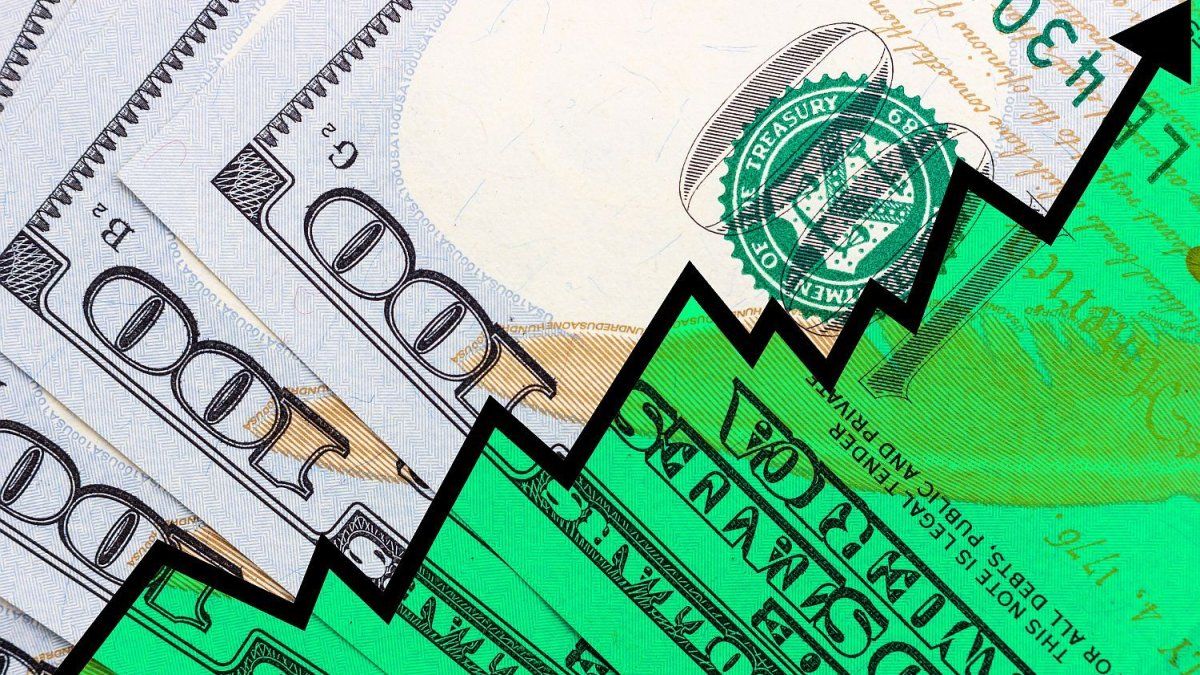The run on deposits affecting US banks Silicon Valley Bank (SVB) and Signature Bank raises fears of a widespread financial crisis in the northern country and a possible contagion effect in the world. In fact, European entities suffer sharp falls in their share prices for this reason and the Federal Reserve has announced that it will go out to support the sector to avoid a domino effect. Argentina is part of the world and the great doubt of any investor, at this time, is how what happens in the United States affects local rates, bonds and stocks.
The first thing to understand is what is happening in the United States. “The bankruptcy of some banks that was seen last week and that is still ongoing is mainly due to a mismatch of terms and the drop in prices that were seen in US bonds from the rise in interest rates by the FED”, explains Ignacio Zorzoli in this regard. , Finance Director of the Argentina XXI Center for Economic Studies (CEEAXXI).
These institutions placed available balances deposited by customers in long-term bonds that have a greater sensitivity to rate changes interest rate and Zorzoli indicates that, based on this, it would be worrying if the monetary regulator decided to make the rate increase more flexible because, according to his vision, that “could trigger an increase in prices in that country”.
The fall of banks and the contagion effect
Thus, as explained by the economist at Epyca Consultores Joel Lupieri, “the fall of SVB is generating nervousness both among investors and among other banks that have positions in American treasuries.” And, hence, the fear of contagion.
Since, Lupieri points out that, beyond the actions of the FED to avoid the fall of more entities, it is possible that we will see a “risk-off” (refers to a generalized perception of high risk that makes investors flee from certain assets) worldwide. As clarified, the latter refers to the sale of assets that are perceived as risky and Lupieri warns that “Argentine securities, without a doubt, qualify within that category.”
In this context, as Diego Martínez Burzaco, Head of Research and Strategy at Inviu, warns, “the first link of contagion that Argentina suffers from the crisis of US banks has to do with the flight to quality process”, which implies that a lot of money is going into US Treasuries and out of risky assets, putting downward pressure on stock and bond prices.
How the financial crisis affects Argentine assets
Juan José Vázquez, Head of Research at Cohen Aliados Financieros, points out in this sense that an effect “flight to quality leads all risky assets to fall due to the search for liquidity preference”. It happens that, when there is a very large uncertainty, like the current one, caused by the run on deposits that accelerates the risk of a recession in the United States, the spreads of all risk assets suffer.
And Vázquez clarifies that, “within that group, obviously, are our bonds and shares.” In fact, this Monday, they started with strong low bonds (around -4.5%) and stocks had opened sharply down as well, although they later recovered a bit.
Likewise, Lupieri mentions that a second effect will be that the weight will probably increase the devaluation pressures to the extent that the world market is turning (at least for the duration of this “tremor”) to take liquidity positions in dollars.
Dollar Dollar 2022 dollars Pesos Bills
The move towards the dollar harms the Argentine monetary dynamics.
Mariano Fuchila
“That can press the coins because the outflow of dollars from emerging markets means that there is more supply of those currencies and they demand more dollars”, points out Martínez Burzaco in this regard.
Thirdly, the economist mentions that a negative effect of the financial crisis could be seen in commodities aligned to growth, such as oil and copper, which fall sharply and this has a negative impact on the foreign trade market of Argentina.
And, finally, Zorzoli adds that, “taking into account that the Argentine markets have already discounted a current situation full of imbalances and uncertainties, it will be necessary to pay Pay close attention to how an eventual change in the US interest rate could affect local papers”.
It is that he considers that, after the collapse of the banks in the United States, the fed could decide to make the rate increase more flexible, something that could trigger a price increase in said country, which would have negative effects in our country.
Source: Ambito
I am a 24-year-old writer and journalist who has been working in the news industry for the past two years. I write primarily about market news, so if you’re looking for insights into what’s going on in the stock market or economic indicators, you’ve come to the right place. I also dabble in writing articles on lifestyle trends and pop culture news.



